Swiss re-elected to UN child rights committee
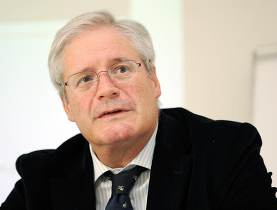
Swiss child rights advocate Jean Zermatten has been re-elected for a further four-year term on the United Nations Committee on the Rights of the Child (CRC).
The extension of Zermatten’s position on the 18-member committee, which oversees the implementation of the UN Convention on the Rights of the Child, is an affirmation of Switzerland’s position on human rights and development, the country’s ambassador to the UN in New York says.
Peter Maurer expressed satisfaction at his colleague’s appointment and told swissinfo that the choice showed many states valued Zermatten’s work and his understanding of the complexity of the subject.
“I am glad to be able to continue my work in the committee for another four years,” Zermatten said after his re-election. “I think the election is a sign of recognition for my work and my commitment,” he added.
Zermatten has served as a juvenile court judge in French-speaking Switzerland and is the founder of the International Institute for the Rights of the Child in Sion.
Serving children
Zermatten says that in his capacity on the CRC, he does not represent the politics of Switzerland – and that he will criticise when necessary.
Decades in the child rights arena have allowed him to witness steps forward, he says but admits there is still a great need for improvement.
“Among other things, I see that in just 20 years since the Convention on the Rights of the Child, there has been real progress. But there is still much to do, I am playing my part.”
The world must keep the promises it made to children and prove its willingness to implement the convention, Zermatten said. But the responsibility does not fall on governments alone – other actors including parents, schools and NGOs must also cooperate for the convention to succeed, he added.
Progress has been made in the areas of child mortality, child labour and in the battle against the use of child soldiers over the past 20 years, Zermatten said, adding that there have also been greater efforts to reduce abuse and prostitution of children as well as child pornography.
Closer to home
There is also work to be done on the implementation of the convention in Switzerland.
“Things look good in areas such as education, nutrition or accommodation. What is still missing is the understanding that the rights of the convention are comprehensive,” Zermatten said.
“The message that children have rights that they can autonomously exert is not yet fully understood in Switzerland. We have to have more trust in the children.”
Children are still too often seen as objects rather than being taken seriously as having their own rights, according to the expert.
“Information about the convention must be improved. Children’s rights must be communicated starting in school. Teachers have to be trained to this end.”
No domestic lobby
To secure the participation of children in society, paradigms must be changed and more political will is needed. “We have a political lobby for almost everything, a lobby for cows or for SUVs but there is no real lobby for children’s rights,” Zermatten pointed out.
Initiatives in parliament usually come up one at a time and relate to individual issues. What is missing is an overall approach to child and family politics, he believes.
Today, the responsibilities are split between the federal government and cantons, which makes coordinated improvements difficult, Zermatten observed. There has been progress in divorce rights, however. Today, children have their opinions taken into account in decisions.
To be able to better implement the convention in Switzerland, a national policy and action plan are needed, as well as a coordination between the federal government, cantons and communes, Zermatten believes.
“And an ombudsman is needed, who would represent and defend children’s rights,” he said.
Zermatten says Switzerland has to expect criticism, in particular in relation to the new laws on asylum seekers and foreigners, which are contrary to guidelines relating to the detention of minors and family reunification.
Switzerland will deliver its next report on the implementation of the convention to the UN committee next year.
swissinfo, based on an article in German by Rita Emch in New York
The UN Convention on the Rights of the Child came into force in 1990.
Switzerland signed the agreement in 1991 and ratified it in 2007.
Some of the fundamental rights of children are:
An inherent right to live, survival and development
Freedom from discrimination based on race, religion, colour, sex or disability
Governments and courts must make the best interests of the child a primary consideration
Ensure the protection, safety and health of the child
Right to be registered immediately after birth, to have a name and a nationality and to be cared for by parents
Freedom of expression, association and peaceful assembly
Protection from unlawful interference
Protection by the state from all forms of physical or mental violence, injury or abuse, neglect or negligent treatment, maltreatment or exploitation, including sexual abuse
A mentally or physically disabled child should enjoy a full and decent life, in conditions which ensure dignity, promote self-reliance and facilitate the child’s active participation in the community
Jean Zermatten was born in 1948 in canton Valais. He is married with two children.
After studying law, he worked for eight years at Fribourg’s youth criminal court.
In 1980, he worked in canton Valais, serving as a judge for that canton’s youth criminal courts for 25 years.
Zermatten founded the International Institute for the Rights of the Child in Sion and teaches at Fribourg University.
He became a member of the UN Committee on the Rights of the Child in February 2005.
He was re-elected in December and is currently vice-chair of the 18-member body.

In compliance with the JTI standards
More: SWI swissinfo.ch certified by the Journalism Trust Initiative
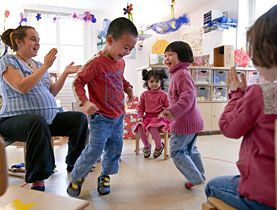
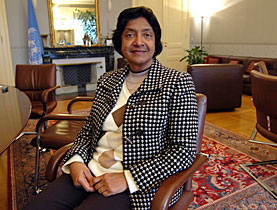
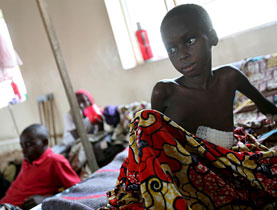
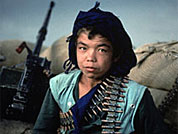
You can find an overview of ongoing debates with our journalists here. Please join us!
If you want to start a conversation about a topic raised in this article or want to report factual errors, email us at english@swissinfo.ch.